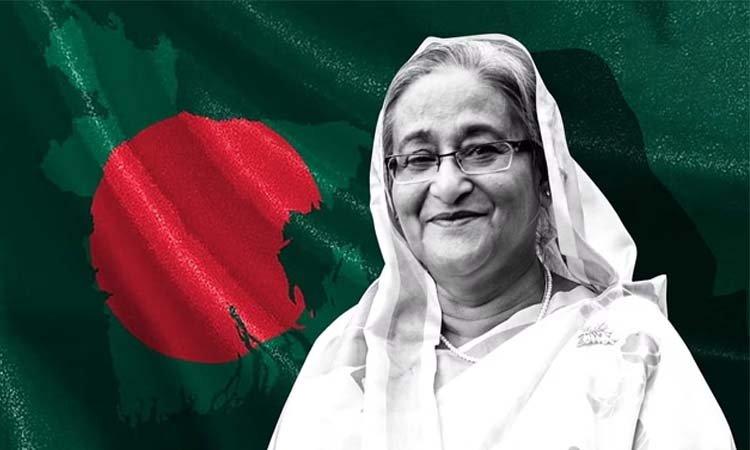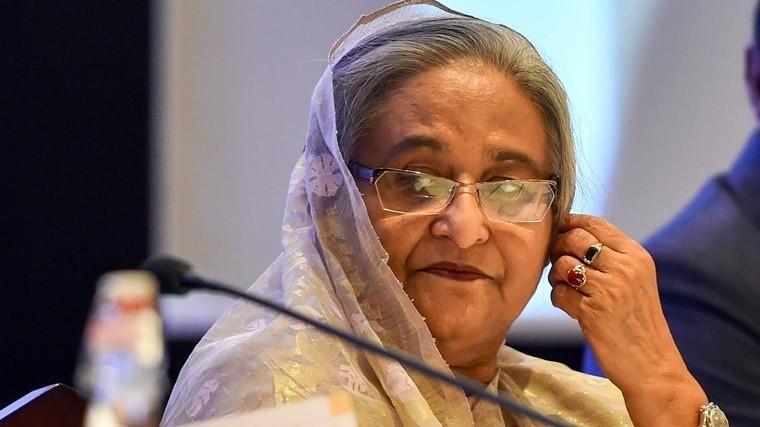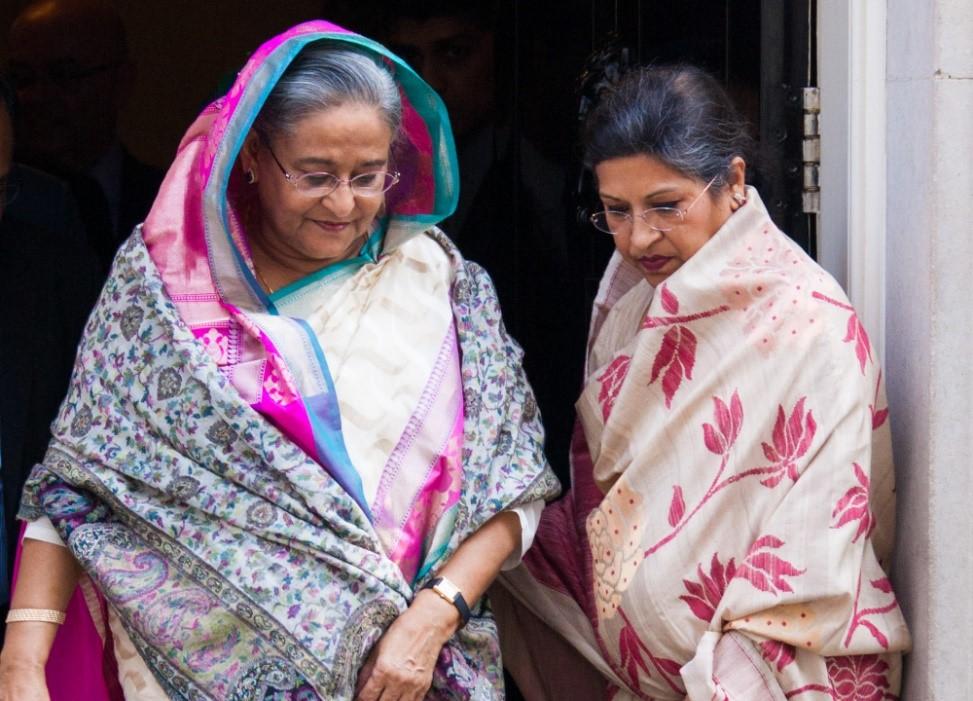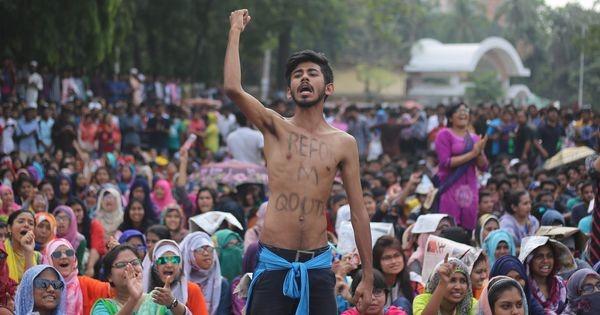Monday 16 February 2026
What Led Bangladesh PM Sheikh Hasina Quitting and Fleeing to India?
Share

Bangladesh Prime Minister Sheikh Hasina quits and fled to India on Monday after a violent crackdown on protests. What initially started as protests over the job quota system, later turned into a violent one for its removal, resulting in the deaths of hundred of Bangladeshi people.
The crowds rushed into the presidential residence without any resistance, taking away furniture and TVs. One man carried a red velvet chair with gold edges on his head, while another had a bunch of vases in his arms.
In another part of Dhaka, protesters climbed on a statue of Sheikh Mujibur Rahman, the founder of the state and Hasina’s father, and started chopping his statues head with an axe.
According to Sajeeb Wazed, son of PM, Hasina left the country for her safety because her family insisted.
Heres the question: Who is PM Sheikh Hasina, why did she quit and fled to India due to Bangladesh protests, and where did it all begin?

Sheikh Hasina Wazed, born on September 28, 1947, is a prominent politician from Bangladesh. She was the Prime Minister of Bangladesh from June 1996 to July 2001 and again from January 2009 to August 2024.
She is the daughter of Sheikh Mujibur Rahman, who was the first president of Bangladesh and the founding father of Bangladesh.
Over the last 30 years, she has been in power for 20 years, continuing the political legacy of her father, who was assassinated in a coup in 1975 along with many family members. Recently, Hasina resigned from office after weeks of protests against quotas for government jobs which led to continued violence.

After the war for independence, Bangladesh granted a 30% quota in civil service and public sector jobs to the children of those who fought for freedom from Pakistan. The quota system was introduced in 1972 by former Prime Minister Sheikh Mujibur Rahman, who is the father of current PM, Sheikh Hasina.
In 2018, PM Sheikh Haseena agreed to abolish all the reservations, but the court nullified that decision this year. The court restored the quotas after relatives of war veterans filed a petition, resulting in a 56% reservation in government jobs for certain groups, including children of freedom fighters.
The courts decision sparked recent protests, with students questioning why the third generation of the 1971 freedom war is receiving these reservation benefits. They also called for a recruitment process based entirely on merit.
On July 21, the Supreme Court of Bangladesh reduced the reservation to 7% for certain groups, such as veterans’ relatives. The government accepted this decision, but violent protests followed resulting in clashes, slogans calling PM Hasina a dictator, and 40 deaths.

After the Supreme Courts decision, the anti-quota protest quickly turned anti-government. The protests continued demanding for PM Sheikh Hasinas resignation.
On August 2, protests broke out all over Bangladesh, leading to two deaths and more than 100 injuries in Dhaka. In the southwestern district of Khulna, the use of tear gas and rubber bullets caused injuries to 50 people. A policeman lost his life during the attack.
The protesters demanded a nation-wide non-cooperation movement from August 4 where they said no taxes and utility bills would be paid. Resulting in 72 deaths, including 14 policemen during the clash. Former army leaders urged PM Hasina to withdraw troops from the streets.
On August 4, a curfew across the country was set at 6 pm, along with a 3-day general holiday starting from Monday. 4G services and all Meta platforms were disabled. PM Hasina invited the student leaders for discussions, but the offer was rejected.
Leaders of civil disobedience did a final protest in Dhaka on August 5, even after the government’s crackdown. At 2 pm, it was revealed that Army chief Waker-uz-Zaman would address the nation.
Waker-uz-Zaman urged the protestors to stop the demonstrations and announced Sheikh Hasina’s resignation. He mentioned that a military-led interim government will take charge now. Meanwhile, Hasina and her sister fled to Agartala, Tripura, India.
Newsletter
Stay up to date with all the latest News that affects you in politics, finance and more.